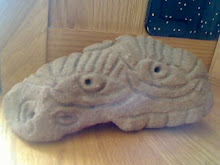Elderberry Fights Flu Symptoms
Jelly, Jam, or Wine Won't Help -- Only Extract Works
By Jeanie Lerche Davis and Daniel DeNoon
WebMD Medical News
Dec. 22, 2003 -- Sambucol, a black elderberry extract, appears to
short-circuit flu symptoms, a new study shows. This is more evidence that this herbal treatment for flu -- if taken when flu-like symptoms first appear -- could help people get through this year's flu invasion a bit easier. However, Andrew Weil, MD, director of the program in integrative medicine at the University of Arizona, is cautious. The findings on Sambucol are only preliminary, he says. He advises people to take prescription drugs if they get the flu, but notes that Sambucol may help.
"Sambucol is for treatment, not for prevention," Weil tells WebMD. "It has an unknown mechanism of action. Research suggests it inactivates the flu virus, but we don't know that for sure." The flu drugs Tamiflu and Relenza are used for the treatment of the flu, if the symptoms have been present for no more than two days. They can also cut flu severity and shorten illness if taken soon after flu symptoms appear.
Background on Black Elder
In folk medicine, flowers from the black elder bush have been used to ease flu symptoms, colds, and sinus problems. In recent years, researchers have begun formal studies of Sambucol -- a formulation of elderberry extract -- to better understand this herbal remedy. A small study published five years ago showed that 93% of flu patients given Sambucol were completely symptom-free within two days; those taking a placebo recovered in about six days. However, the study took place during an outbreak of influenza B -- so it was unclear whether Sambucol worked with type A virus. This current study shows that, indeed, it works for type A flu, reports lead researcher Erling Thom, with the University of Oslo in Norway. Thom's findings were presented at the 15th Annual Conference on Antiviral Research in 2002. The study has been accepted for publication in the Journal of International Medical Research. The study involved 60 patients who had been suffering with flu symptoms for 48 hours or less; 90% were infected with the A strain of the virus, 10% were infected with type B. Half the group took 15 milliliters of Sambucol or and the other group took a placebo four times a day for five days.
Patients in the Sambucol group had "pronounced improvements" in flu symptoms after three days: Nearly 90% of patients had complete cure within two to three days. Also, the Sambucol group had no drowsiness, the downside of many flu treatments. The placebo group didn't recover until at least day six; they also took more painkillers and nasal sprays. It's likely that antioxidants called flavonoids -- which are contained in the extract -- stimulate the immune system, writes Thom. Also, other compounds in elderberry, called anthocyanins, have an anti-inflammatory effect; this could explain the effect on aches, pains, and fever. Elderberry extract could be an "efficient and safe treatment" for flu symptoms in otherwise healthy people and for those with compromised immune systems, such as the elderly, Thom adds.
Russell Greenfield, MD, a leading practitioner of integrative medicine and medical director of Carolinas Integrative Health, advocates treating flu with black elderberry, he says in a news release. "It can be given to children and adults, and with no known side effects or negative interactions," he says. "But don't expect grandma's elderberry jam" to ease flu symptoms like body aches, cough, and fever, he warns. "Sambucol is the only black elderberry preparation shown effective in clinical studies."
Thursday, October 22, 2009
blog comments powered by Disqus





